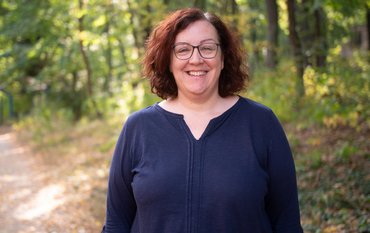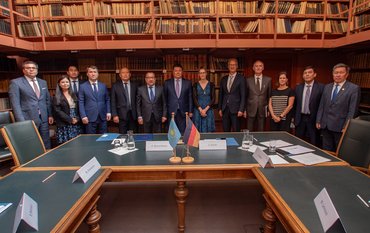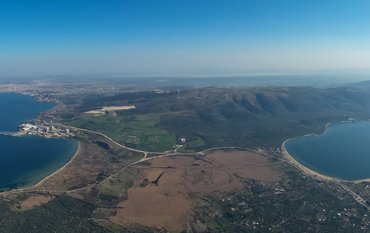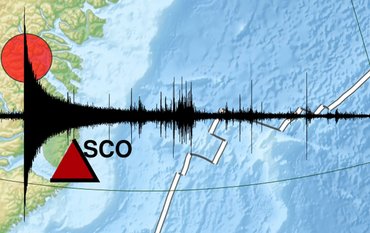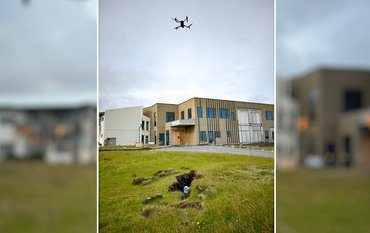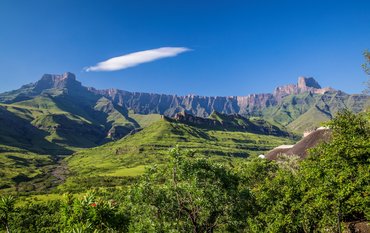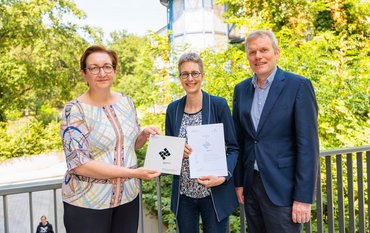Today, Friday, Olaf Scholz visited the Telegrafenberg in Potsdam to learn about ways to achieve climate neutrality. Scientists from the research institutions based here discussed with the vice chancellor and candidate for chancellor of the SPD topics such as the energy transition, raw materials and sustainability, climate change and its consequences, as well as the necessary adaptation to change. A particularly large amount of space was devoted to the topic of "Transformation - breaking new ground". "We have to set the course now for what the economy should look like in ten or twenty years," said Olaf Scholz. He admitted that politics and administration have a hard time with long planning horizons and especially with responsibilities.
Niels Hovius, acting Scientific Director of the GFZ German Research Centre for Geosciences, had an important message for politicians: "Science needs the freedom to explore solutions." The example of underground carbon dioxide storage (CCS) shows that this is not always the case. Politicians have withdrawn from funding research in this area. Yet the GFZ has shown with its project in Ketzin, Brandenburg, that safe and long-term storage of CO2 in the geological subsurface is possible. CCS is a way to achieve so-called negative emissions, i.e. to permanently remove greenhouse gases from the atmosphere.
Under the impressive roof of the Great Refactor with its 120 year old lens-telescope, also Eva Börgens, Heidi Kreibich, Friedhelm von Blanckenburg, Magdalena Scheck-Wederoth und Robert Trumbull were representing the GFZ research. Together with their collagues, they discussed a number of other options for climate protection and adaptation with Olaf Scholz. Three other thematically oriented tables dealt with the current state of knowledge in Earth system research ("What is the situation?"), adaptation to new normalities ("Living with change") and transformation ("Taking new paths"). Researchers and their institute directors from the following institutions took part in the event: Leibniz Institute for Astrophysics (AIP), Alfred Wegener Institute for Polar and Marine Research (AWI), GFZ German Research Centre for Geosciences, Institute for Transformative Sustainability Research (IASS) and Potsdam Institute for Climate Impact Research (PIK).
Scientific contact:
Prof. Dr. Niels Hovius
Scientific Executive Director (interim)
Helmholtz Centre Potsdam
GFZ German Research Centre for Geosciences
Telegrafenberg
14473 Potsdam
Phone: +49 331 288-1000
E-mail: niels.hovius@gfz-potsdam.de
Press contact:
Josef Zens
Head of Public and Media Relations
Helmholtz Centre Potsdam
GFZ German Research Centre for Geosciences
Telegrafenberg
14473 Potsdam
Phone: +49 331 288-1040
E-mail: josef.zens@gfz-potsdam.de















![[Translate to English:] [Translate to English:] Abror Gafurov von dem Schriftzug "Welcome to Azerbaijan" und den UN und COP Logos](/fileadmin/_processed_/2/5/csm_2024_11_Baku_COP29_Abror_Gafurov_1042faec82.jpeg)



![[Translate to English:] Martin Herold standing in front of the library on the Telegrafenberg](/fileadmin/_processed_/c/d/csm_Martin_Herold_d385ee4dd9.jpeg)
![[Translate to English:] Many people are listening to a presentation in the GFZ lecture hall.](/fileadmin/_processed_/c/a/csm_1_Bild1_hell_b9c0e9f5ed.jpeg)





![[Translate to English:] Both scientists sitting on stools in front of a wall of books in the Telegrafenberg library](/fileadmin/_processed_/6/6/csm_Buiter_Castell_DORA_4_e87cb1ea18.jpeg)
![[Translate to English:] Gruppenbild mit 4 Personen](/fileadmin/_processed_/8/d/csm_20241017_GFZ-Emmerman-Medal-005_web_reinhardtundsommer_21a414fa4a.jpeg)






![[Translate to English:] Ice landscape with five red tents](/fileadmin/_processed_/8/9/csm_Zeltlager_auf_dem_Eis_Urheberin_Jenine_McCutcheon_5ced2d523b.jpeg)


